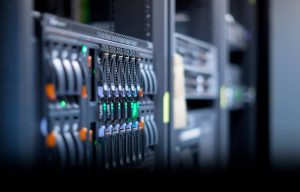Over the past few decades, free public Wi-Fi has grown to become a rather useful tool for those with mobile devices. Such services are now readily available in most airports, hotels, restaurants, and stores. This means that you can access your email, website or online program at any given time from essentially any public location.
Risks posed by public Wi-Fi
Wi-Fi hotspots are convenient because they do not need authentication for one to gain access. However, these lack of restrictions can also be very advantageous to hackers, who can join the network and deploy malicious software.
One of the primary threats to free Wi-Fi security is the ability of hackers to set themselves in a position between regular users and the connection point. As opposed to talking directly with the hotspot, you will be sending your information through a hacker, who will then relay it on to the access point.
In most cases, a hacker will use a small device known as a Wi-Fi Pineapple which he or she can conceal in a small backpack. This tool basically “spoofs” the same name as the free hotspot and tricks your laptop or tablet to connect to it first instead of the actual free public network. This will allow the hacker to have access to some of your most private and vital information like credit card details and account numbers.
Due to the increased security threats posed by public Wi-Fi services, the need to implement strategies that can protect unsuspecting users is more important than ever.
How to avoid public Wi-Fi problems
Use a Citrix or VPN connection
When connecting your company’s devices via an unsecured Wi-Fi system as a business, it is essential that you have a VPN (virtual private network) in place. A huge number of companies use Citrix to establish an encrypted tunnel so their employees can access corporate and network applications. It provides high-performance capabilities that most traditional VPN systems lack. These additional features allow staff members working remotely to have the same experience as if they were in the office.
Make use of SSL connections
Even if you are not connected to the internet through a VPN or Citrix connection, you can still add an extra layer of encryption. This usually involves enabling the ‘Always Use HTTPS’ option on the sites that you visit frequently, or those that require you to provide your credentials.
You should keep in mind that hackers understand that people reuse their passwords, which means that your username and password for one site might be the same as your bank account or corporate network password. If a hacker obtains this password, he or she can access many or all of your online accounts.
Ensure that sharing capabilities are turned off
Depending on your OS, you can turn off the public sharing feature using the system preferences or control panel whenever you connect to a new and unsecured network.
Stay away from sensitive websites
If you are using public Wi-Fi and do not have a secure connection, stay away from sensitive sites (like your online bank account). Simply wait until you get home or when you can access your secure office network to access such sites.
Avoiding running updates
When connected to public Wi-Fi, hackers can send fake software updates identical to the real thing. As an unsuspecting user, you will run the update thinking it’s a good addition to your OS, but in reality you will have allowed the hacker to install malicious software, giving them part or full control of your device.
Do not use it when you do not need to
You should avoid using public Wi-Fi when you do not need it. This will help to reduce your chances of being hacked.
Always remain protected
This involves installing a good anti-virus or malware software for protection. In addition to installing such software, it is important that you update them regularly.
With the above information, you can get a better understanding regarding the dangers of public Wi-Fi and what measures you can take to protect your devices. This will ensure that you remain protected at all times. If you have any questions or have been the victim of hackers contact the network security professionals at OAC Technology today.







